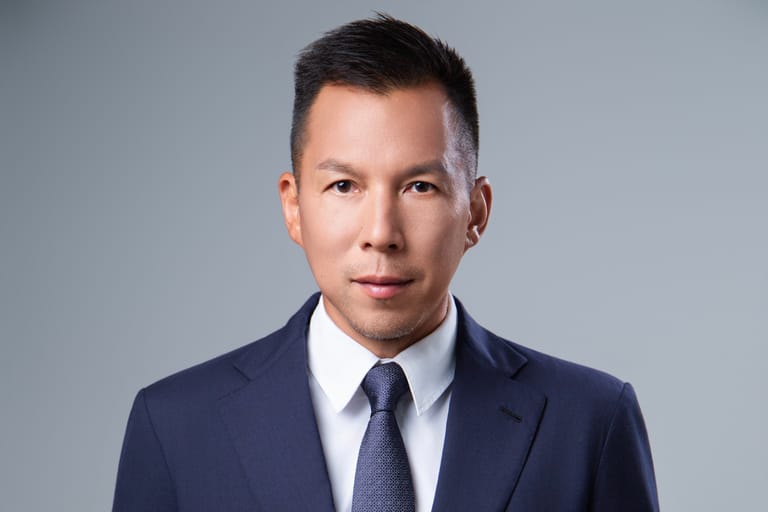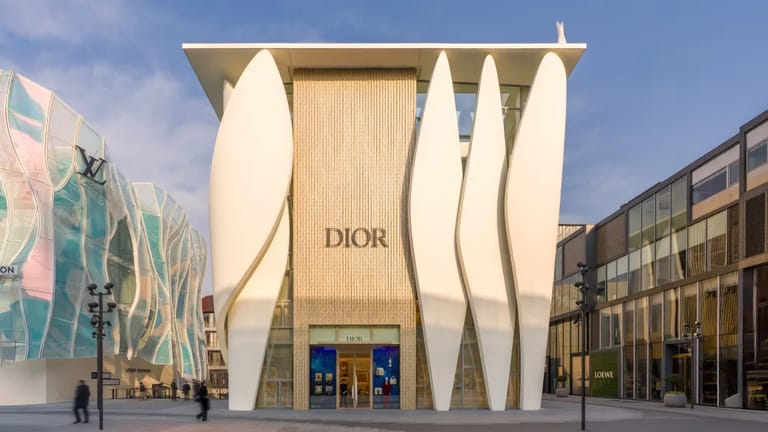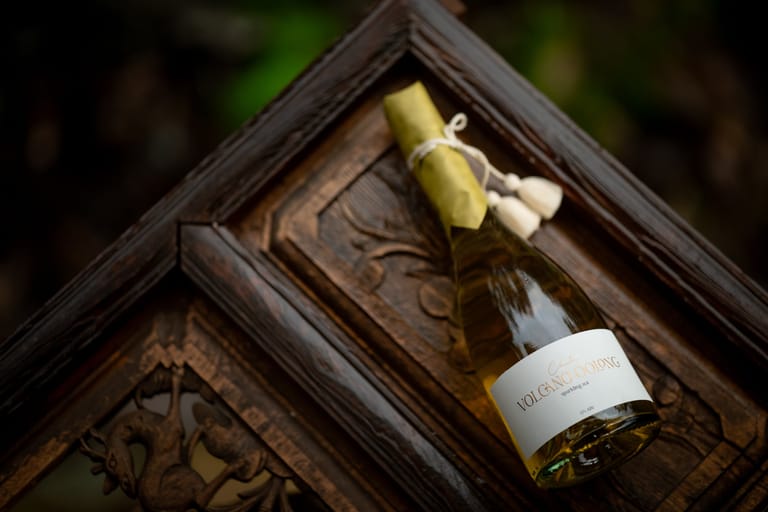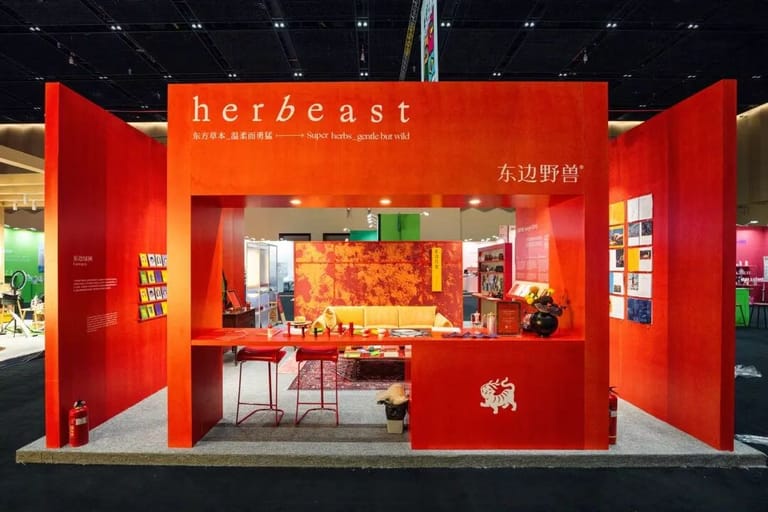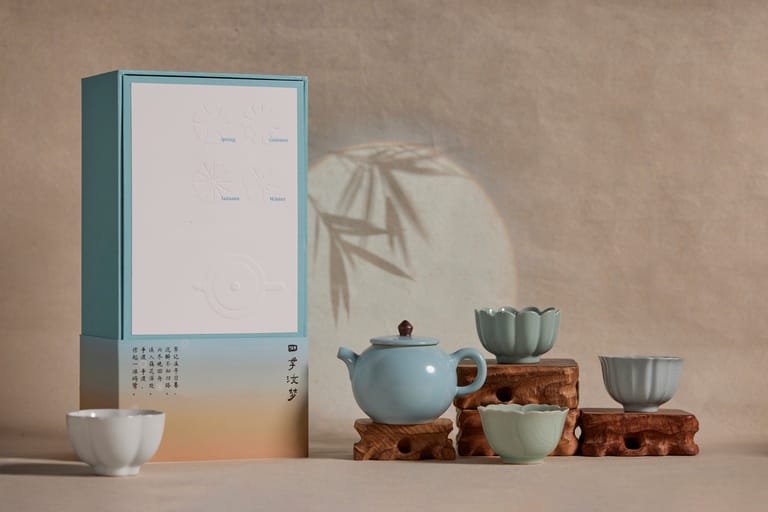Liquides Imaginaires Returns to China: The Alchemy of Imagination and Poetry
By
Charlie Gu
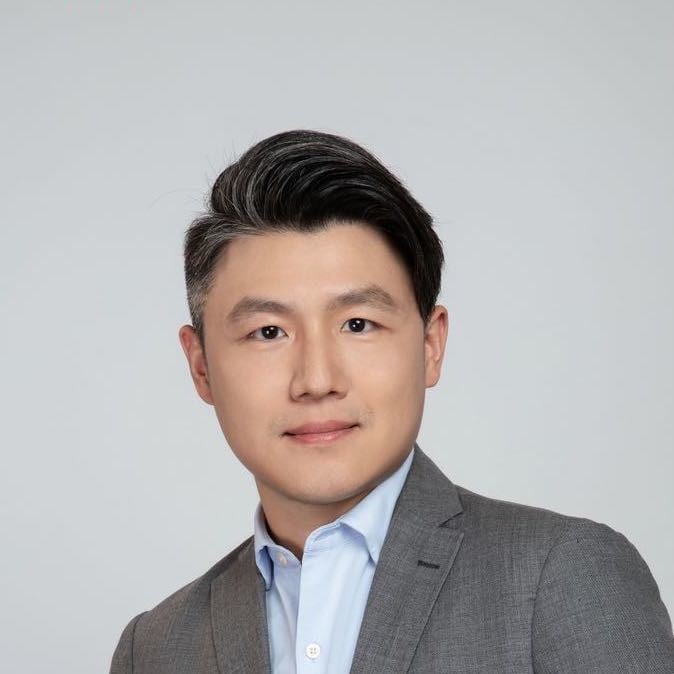
Published on
November 4, 2025

Few perfume houses approach scent as poetry, but for Philippe Di Méo, fragrance is a ritual of imagination.
At Notes Shanghai 2025, the French fragrance house Liquides Imaginaires staged its third official entry into China — a return as symbolic as it was strategic. During the event, Jingzhi Chronicle sat down with Philippe Di Méo, the brand’s founder and creative director, to discuss the history, philosophy, and future of Liquides Imaginaires — and to explore how a house built on mythology and ritual finds new life in China’s rapidly evolving fragrance culture.
For Di Méo, this return felt less like a relaunch than a reunion.
“It’s like a couple that broke up before and they have their own lives, they explore their own worlds,” he said. “Then they both grow up and they both know themselves much more… Now they will create something new together, meaningful.”
This renewed encounter happens at a time when China’s fragrance culture has come of age. Consumers, especially younger generations, are moving beyond logo-driven consumption toward experiences that express individuality and emotion. The rise of niche and artistic perfumery reflects this evolution — where meaning, craftsmanship, and storytelling carry as much weight as scent itself. For international houses like Liquides Imaginaires, this shift signals an audience ready to engage not only with fragrance, but with the philosophy and imagination behind it.
“The (Chinese) customers are very young,” Di Méo observed. “I like the link between tradition and modernity… We can use the past because it’s a foundation, but to build something new, to look to the future, to new experience.”
Sacred Origins, Shared Rituals
When Philippe Di Méo conceived Liquides Imaginaires in 2011, it was not meant to be a company at all.
“At the beginning the brand was not supposed to be a brand,” he recalled. “It was an artistic exhibition during the design week in Paris in 2011… The perfume was not created for the humans but for the gods.”
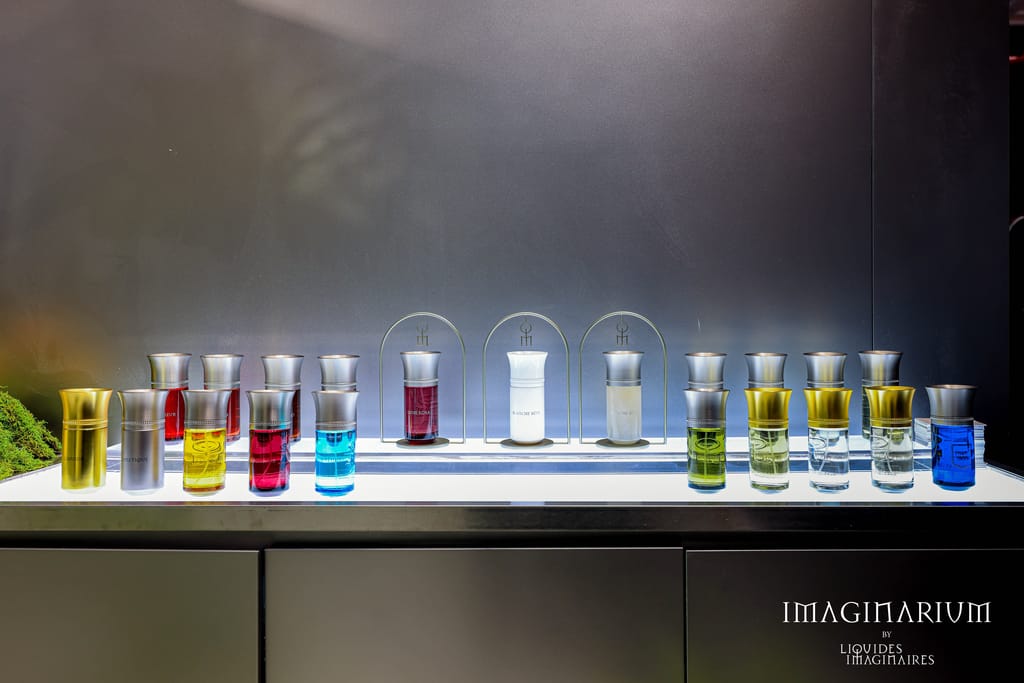
That founding idea — to restore perfume’s sacred, almost spiritual purpose — remains the backbone of the house. Yet for Di Méo, spirituality is not detachment; it’s about presence.
“When you use perfume in the morning, you have to talk with it, make a link. If you believe perfume can do something for you, it becomes different,” he said.
In China, where the art of fragrance(香道)historically bridged the human and the divine, such thinking feels instinctively familiar.
“With incense, you talk to the god or make a wish,” he added. “It’s a good match between the past and the future.”
This philosophical grounding helped Liquides Imaginaires stand apart from fashion-driven perfumery. By positioning scent as an experience rather than an accessory, the house built credibility among collectors and cultural tastemakers — a niche that has grown exponentially in China.
A Deliberate Return to China
Liquides Imaginaires’ third entry into China is more than a comeback — it’s a calculated re-entry built on timing, partnerships, and a clearer understanding of the market.
“In Europe we are very nostalgic, very traditional,” Di Méo reflected. “I prefer this kind of feeling in China because we can use the past as a foundation but build something new, to look to the future.”
The decision to return in 2025 came after several years of artistic growth and international consolidation. The brand first secured mature distribution in Europe and the Middle East, establishing the credibility and operational stability required to re-engage a fast-moving Chinese market.
This time, its focus is precision over presence. In China, Liquides Imaginaires will adopt a hybrid retail model — combining limited points of sale in niche boutiques with immersive pop-ups emphasizing education and storytelling over scale.
“You have to use perfume like a key,” Di Méo said. “It is not to impress others, but to connect.”
That conviction takes form in immersive concepts such as the Olfactory Tarot, where visitors draw a scent that mirrors their emotional state — an idea that aligns naturally with China’s growing “spiritual economy” (玄学经济).
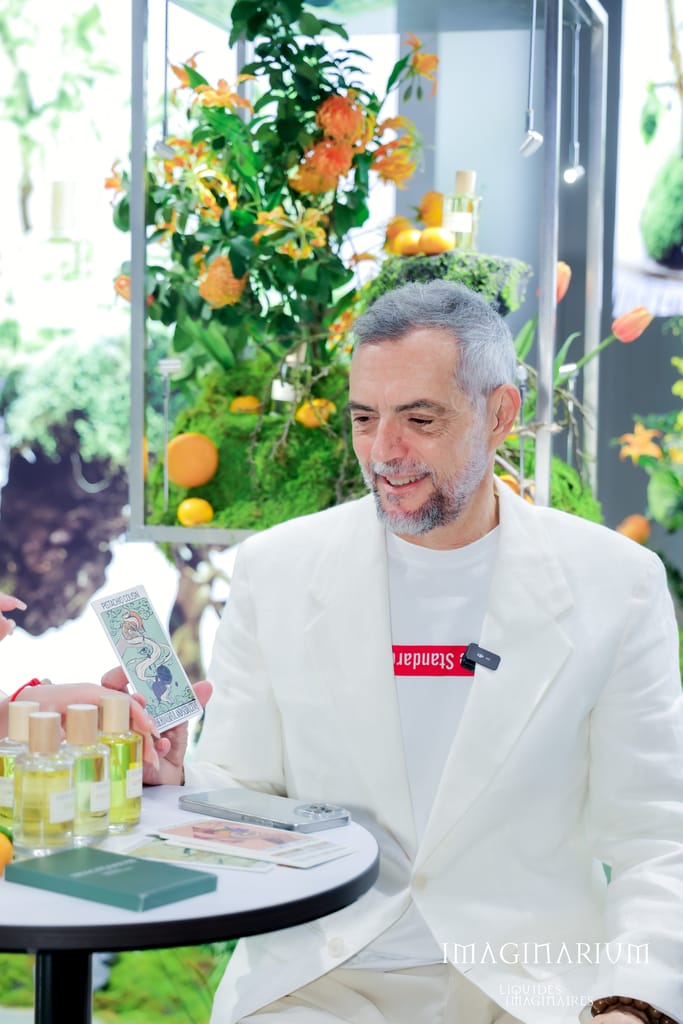
The brand’s key mainland partners — The Balancing, Nichetalks, and May & Tang — are helping shape its presence around curation and content, while the Hong Kong K11 Musea and IFC Mall pop-up serves as a creative testing ground for cross-border retail experiences.
“It allows us to reconnect with our fans and share how much Liquides Imaginaires has evolved,” Di Méo said. “To combine our poetic French roots with a forward-looking artistic edge.”
Building Cultural Footprints
Beyond commerce, Liquides Imaginaires aims to weave itself into China’s creative fabric. Collaborations with venues such as Tiao Bar & Perfumery and art-driven gatherings during Notes Shanghai invite audiences to experience fragrance as a shared language.
“Perfume is like a language,” Di Méo said. “The difference between brands is only the process — you have to transform the raw material into something different at the end. When people gather to experience perfume, it creates emotion and connection. It is like music or painting.”
He compares his creative process to filmmaking:
“When I think of perfume, I think of it like a movie,” he explained. “I try to create a universe, and after that I need a character to play in this universe.”
For Chinese consumers increasingly drawn to storytelling and self-expression, this cinematic approach resonates. It also signals how Liquides Imaginaires positions itself — not as luxury in the traditional sense, but as a cultural brand built on emotion, storytelling, and cross-disciplinary collaboration.
Next-Generation Imagination
The house’s newest collection, The Imaginarium, represents its next phase — scientific, luminous, and emotionally accessible. Centered on citrus notes, it reinterprets freshness through innovation rather than nostalgia.
“The citrus is built around the concept of hybridization,” Di Méo said. “There were only four citrus fruits at the beginning. Humans made hybridization to create a new family. Now we have to create a new citrus with a new hybridization. Nature can offer to us a new fruit — impossible to eat or taste, but possible to smell.”
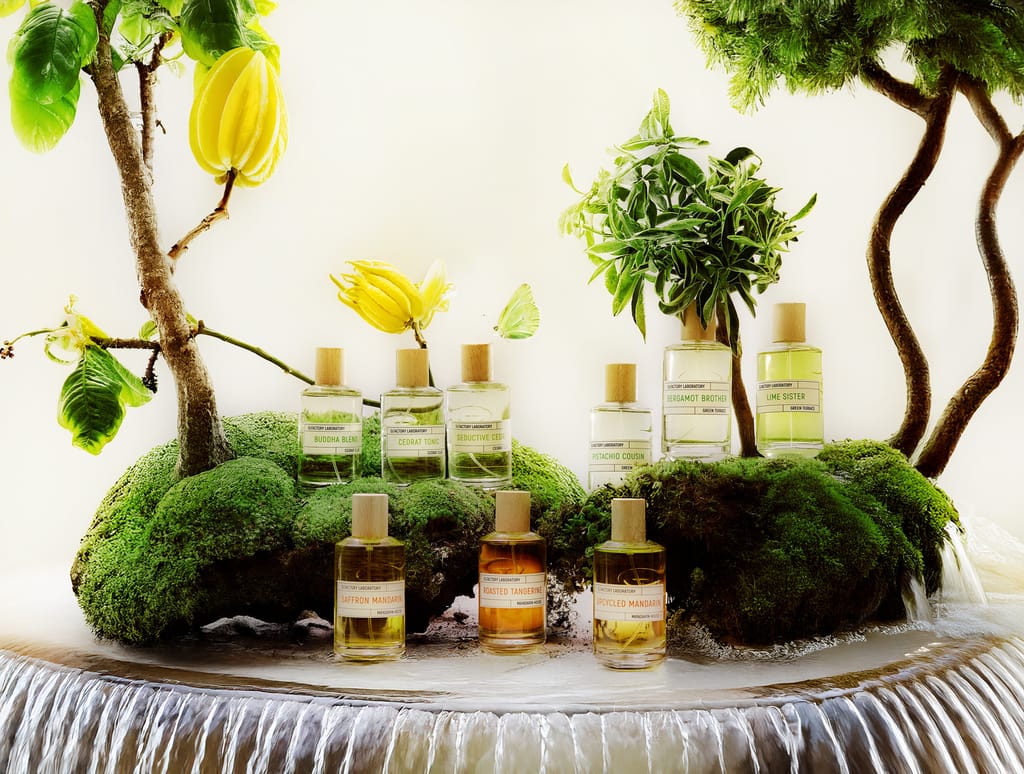
He calls this method a “laboratory of imagination,” where experimentation is not failure but progress.
“When your objective is to create something perfect, sometimes you create something too classical,” he noted. “If you are able to make an error, maybe it could be a way to do something different.”
Among the collection’s highlights is Buddha Blend, inspired by a pastry made with Buddha’s Hand and lemon caviar — a subtle nod to Asia’s symbolic fruit of happiness.
“My citrus is happiness,” Di Méo smiled. “It’s a splash of happiness on your face.”
The Courage to Take Risks
For Di Méo, the essence of artistry lies in risk-taking.
“From the beginning we decided to take risks,” he said. “We never wanted to please everyone. When you try to make something for everybody, you create nothing new. Perfume should disturb a little, make people feel or think.”
That philosophy aligns closely with China’s young fragrance enthusiasts — curious, culturally confident, and unafraid of ambiguity. Their pursuit of meaning over status mirrors the very shift driving the country’s creative economy.
“Sometimes it intrigues, sometimes it unsettles — but that’s the sign it’s alive,” he said. “Perfume must be like art; if it leaves you indifferent, it’s dead.”
Maison of Imagination
As Liquides Imaginaires enters its third chapter in China, Di Méo envisions more than expansion. He imagines a Maison of Imagination — a space where art, ritual, and emotion meet, and where perfume becomes a living dialogue between cultures.
“Each perfume carries an intention — strength, desire, protection,” explains Di Méo. “You have to use perfume for one reason; The first connection is always for you.”
In that simple truth, Liquides Imaginaires finds its place — not as a returning brand, but as a storyteller whose imagination bridges worlds. In today’s China, where the philosophy of jingzhi continues to shape ideas of a refined lifestyle, its poetic spirit feels both timeless and perfectly at home.


